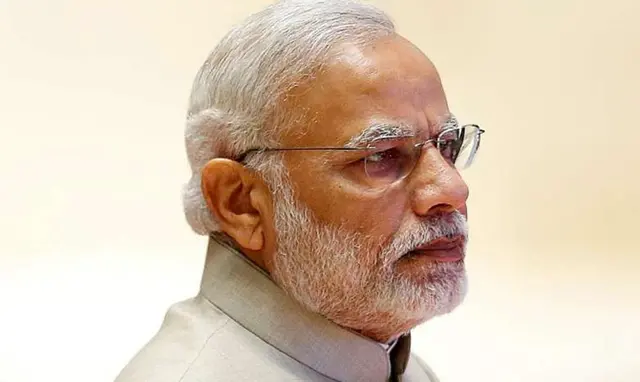More than two years into his tenure, Prime Minister Narendra Modi continues to have broad support in India, despite criticism over stalled economic reforms and religious and caste tensions in the country, according to a new report by the Pew Research Centre.
The report, which was published on Monday, found that 81 per cent of Indians had a favourable view of Mr Modi this year, down from 87 per cent the year before.
It also found that even among supporters of the Indian National Congress party, the main opposition group, a majority had a positive view of Mr Modi and his Bharatiya Janata Party.
Mr Modi swept into power in 2014 on a wave of public support for his development agenda, and on disaffection with the previous governing coalition led by the Congress party.
Though economic changes have been intermittent, partly because of lack of support in Parliament from other parties, eight in 10 Indians have a positive view of the economy, and about two-thirds are satisfied with the way things are going in India generally, according to the survey.
Part of the goodwill could be explained by the country's economic growth; an annual rate of 7.1 per cent for the most recent quarter makes India the fastest-growing large economy in the world.
But significant economic alterations, including those regarding land acquisition and labour, which are seen as crucial for modernising India's economy and expanding its formal workforce, have stalled because of a lack of support in Parliament.
In one sign of progress, however, the government last month pushed through the goods and services tax, a uniform code that should do away with overlapping state and federal taxes, helping to unify the economy.
"People are not willing to give up on him on the economy so quickly," said Mr Shekhar Gupta, a journalist and political commentator, adding that Mr Modi's frequent speaking engagements may have helped bolster his popularity. "After a long time, Indians have a leader who's speaking to them directly and speaking to them all the time."
The pollsters interviewed 2,464 randomly selected adults from April 7 to May 24 in 15 states and in New Delhi, the capital. The poll has a margin of error of plus or minus 3 percentage points.
One of the main criticisms of Mr Modi has been his apparent reticence to confront instances of intolerance, including violence by self-appointed cow protection groups that want a ban on slaughter of cows, which are regarded as holy animals by the majority Hindu community in India.
About half of the respondents viewed "communal incidents", or tensions between religions or castes, as a very serious problem. However, the issue ranked behind others such as corruption, crime, terrorism and unemployment.
(THE STRAITS TIMES)
 简体中文
简体中文

